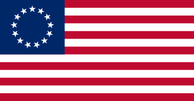There are numerous “General Washington” quotes used in Richard Hanser’s 1976 book, The Glorious Hour of Lt. Monroe, and they give readers a sense of “George” the person on this night in his life. This wasn’t just any mission for him or the army he commanded: it happened to be the mission – an “all-in” moment. Hanser’s quotes show us the George before he became George Washington the statue. The countersign “Victory or Death” for example; a General Knox is hefty joke while boarding the boat to cross the Delaware; a growl at Major James Wilkinson for delivering the mail at the wrong time; a command to “use the bayonet” if the gunpowder is wet; and there’s also the famous one as he’s told the last Hessian units have surrendered: “Major Wilkinson, this is a glorious day for our Country.”
Battles have fulcrums. Trenton pivoted on two Hessian cannon commanding King Street. The Third Virginia, under the command of Captain William Washington (a second-cousin of George’s), charged and captured those cannon; moments later, Captain Washington is wounded and (suddenly) Lt. Monroe is the ranking officer of the regiment. Hanser quotes an older Monroe speaking in the dissociating third-person (154):
“The command devolved on Lieut. Monroe, who advanced in like manner at the head of the corps, and was shot down by a musket ball, which passed through his breast and shoulder. He was carried from the field …”
That’s James Monroe, future fifth president of the United States.
Hanser continues (154-5):
Three of his soldiers carried him to a room in a nearby house that had been commandeered as a field hospital. His wound was a bad one. The musket ball, in tearing through the chest and shoulder, had severed an artery. Blood spurted from the wound.
“I would have bled to death,” Monroe said afterwards, “if this doctor had not been near and promptly taken up the artery.”
The doughty Dr. Riker had accompanied Lieutenant Monroe and his unit not only along the whole march through that tempestuous night but right into the thick of the street fighting. And his prediction at the start that he might be able to help “some poor fellow” in case of trouble came true: the poor fellow turned out to be Lieutenant Monroe himself. Had the ruptured artery not been “taken up,” or surgically closed, at once, the future fifth president of the United States would have perished, at the age of eighteen, in a pool of blood on a slushy street in Trenton, New Jersey.
Monroe, barely conscious and in great pain, was treated in the same room where William Washington’s wounds were also being tended. Dr. John Cochran, the future surgeon general of the Continental Army, was also in attendance in that primitive and improvised field hospital. Between the two dedicated doctors, Lieutenant Monroe’s wound was dressed and treated with as much skill and professional knowledge as the medicine of the time and place could provide.
But the Hessian musket ball remained in his body for the rest of his life …
I have a new understanding and appreciation for the Monroe Doctrine – no European involvement in the Americas – given the fact the guy it’s named after had a European musket ball in his shoulder.
Monroe talked of Trenton and Lt. Monroe more in terms of duty than glory. Maybe he’d accept the phrase ‘the glory of duty’ as a way to describe his actions; there was something special about him that day – even General Washington saw it. Hanser ends his book with Washington’s opinion of our young lieutenant’s character: “I take occasion to express the high opinion I have of his worth. The zeal he discovered by entering the service at an early period, the character he supported in his regiment, and the manner in which he distinguished himself at Trenton, where he received a wound, induced me to appoint him to captaincy … He has in every instance maintained the reputation of a brave, active, and sensible American.”
James Monroe went on to serve the US in many ways; with that Hessian musket ball lodged in his shoulder though, it’s easy to imagine a teenager, a doctor and a particular moment in life – were never really that far away.
Bryan W. Brickner

 RSS Feed
RSS Feed
